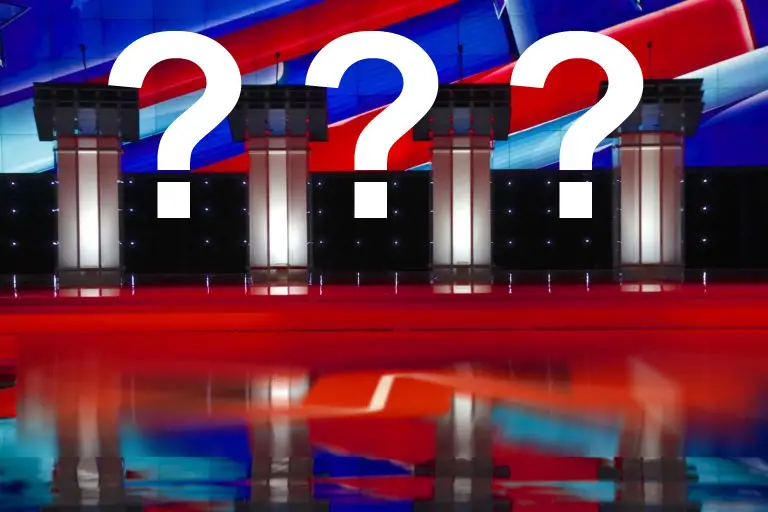We’re just days away from the first important milestone in selecting the 20 candidates who will appear at the first Democratic debate on June 26 and 27 in Miami, Florida. Campaigns have all been feverishly working their donor base and trying to get at least 1% polling support to get their name on the list of qualified candidates. With the deadline fast approaching for campaigns to have their numbers in order, the Democratic National Committee (DNC), the final arbiter of who’s in and who’s out, has clarified some of the polling rules leaving at least one sitting Democratic governor off the debate stage.
Important Dates
June 12, 2019 – The cut-off deadline for campaigns to reach the qualification to participate in the first debate which will be held on June 26-27.
June 14, 2019 – The presumed date when we will learn how the 20 candidates will be randomly allocated to one of two nights for the debate itself.
Montana Gov. Steve Bullock may be out
As we reported days ago, it appeared that Montana Governor Steve Bullock had made the cut to bump the number of qualified candidates up to 21. Politico is now reporting that the DNC has clarified the rules and alerted the Bullock campaign months ago that the polls they were relying on as qualifiers were not valid in the eyes of the DNC:
On Thursday, the DNC told POLITICO that a pair of Washington Post/ABC News polls would not be considered eligible polls that candidates can use to qualify. One of the three polls Bullock would have relied on to qualify was a Post/ABC poll taken in January.
Bullock’s campaign was sharply critical of the announcement. “While Gov. Bullock was expanding Medicaid to one in ten Montanans despite a two-thirds Republican legislature, the DNC was making arbitrary rules behind closed doors,” Jenn Ridder, Bullock’s campaign manager, said in a statement. “The DNC’s unmasking of this rule singles out the only Democratic candidate who won a Trump state — and penalizes him for doing his job.”
“We notified the Bullock team in March, so they have known for months,” DNC spokeswoman Adrienne Watson told POLITICO shortly after the publication of this story.
The issue is the polling methodology being used in the polls cited by the Bullock campaign as evidence that he reached the polling threshold. The DNC says not so fast as those polls were open-ended in their questioning rather than the traditional format of providing the poll respondent a list of names.
Seems to be splitting hairs at this point, but it’s bad news for the Bullock campaign unless valid poll pops up for the Governor in the next 6 days before the deadline on June 12.
As a refresher on the qualifications, candidates must earn at least one percent support in three separate national or early-state polls conducted from January 1 to two weeks before the debate. Candidates can also qualify by receiving donations from at least 65,000 people across 20 different states, with a minimum of 200 unique donors per state.
Bullock, according to the DNC, has not met the polling threshold in any valid polls at the one percent mark.
Last-minute rule change?
The inevitable controversy surrounding Bullock’s position is how murky the rules are coming from the DNC in terms of how they view polls and which polls are valid qualifiers for the debate. The Bullock campaign and others have been asking for clarification since the original set of rules provided by the DNC earlier this year did not specifically state which type of polling methodology would be considered acceptable as means to qualify for the debate.
For the third and fourth debate, the DNC became more explicit with a list of valid polling sources and methodologies to try and avoid this type of confusion. However, the first two debates will be wrought with controversy for the candidates left off the stage based on rules which were not well-defined from the start.
In the eyes of the DNC, it would be best to have 20 debate spots and 20 candidates so no messy tie-breakers must take place. For Bullock, and campaigns in his situation, it could be the end of the line since a lack of national debate exposure can make a candidate irrelevant.
Donate Now to Support Election Central
- Help defend independent journalism
- Directly support this website and our efforts
